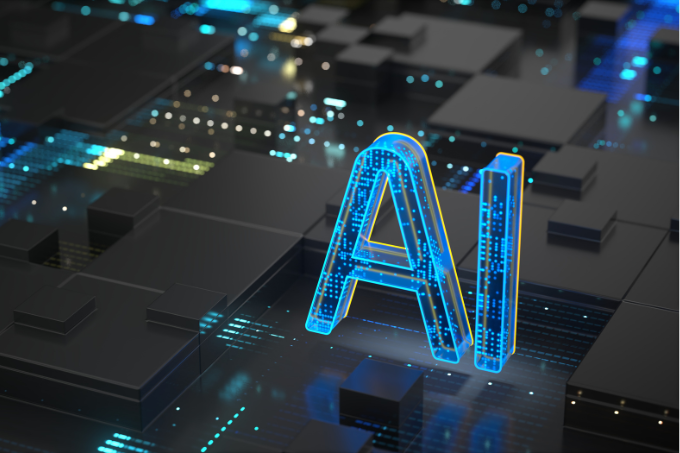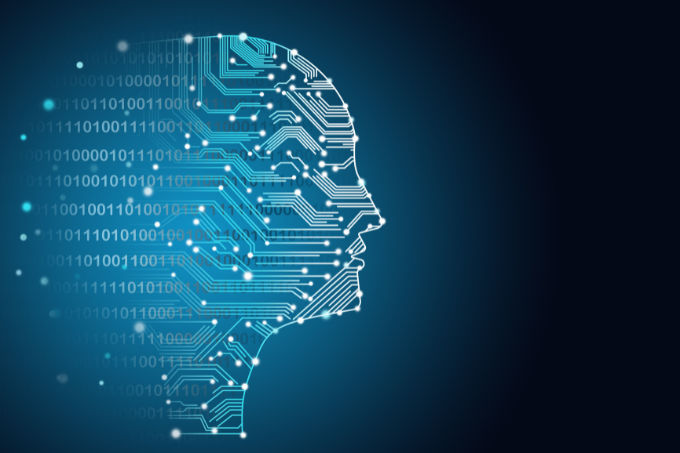Managing AI Risks And Embracing New Opportunities With ISO 42001
Join NQA's Global Accreditation Director, Sam Roberts, as she talks about the exciting development of ISO 42001: The world’s first management system for artificial intelligence.

The explosion of artificial intelligence in everyday life
Artificial intelligence (AI) has rapidly intertwined with various aspects of our daily lives, often without us even noticing.
From the moment we unlock our phones with face detection to the personalised recommendations we receive on streaming services such at Netflix, AI is constantly gathering data, understanding our preferences, and responding in increasingly sophisticated ways.
There seem to be two predominant forms of AI that are shaping our world:
1. Software AI: This includes virtual assistants (like Siri, Alexa, and Google Assistant), image analysis software, search engines, and speech and face recognition systems. These AI applications operate primarily in the digital realm, processing information and interacting with its users through interfaces.
Some examples of this could include:
-
Digital Assistants: Helping us set reminders, make calls, and control smart home devices.
-
Search Engines: Using AI algorithms to provide us with more relevant search results.
-
Social Media: AI-powered algorithms write content feeds that will resonate with us and suggest connections.
-
Online Shopping: Recommending products we might enjoy based on our past purchases and browse history.
-
Email Filtering: Identifying and blocking spam, and suggesting smart replies.
-
Navigation Apps: Analysing real-time traffic data to provide the quickest routes and arrival times.
-
Text Editing and Autocorrect: Improving writing by identifying grammatical errors and typos.
-
Fraud Detection: Looking at our purchase patterns to flag suspicious activity in banking.
-
Streaming Services: Suggesting movies and shows based on viewing habits
2. Embodied AI: This refers to AI within systems that can interact with the physical world. This could include robots, self-driving cars, and even drones.
Embodied AI uses perception, learning, and motor skills, to allow these systems to perform tasks that require a more thought-like analysis followed by an action.
Examples:
-
Robots: Used in manufacturing for repetitive tasks, in healthcare for assisting surgeries, and in hospitality for customer service.
-
Autonomous Cars: Processing data from sensors and cameras to navigate complex environments and make real-time decisions, like emergency breaking.
-
Drones: Used for various purposes, including delivery, and surveillance.
-
Smart Home Devices: Robotic vacuum cleaners, smart thermostats, and security cameras that learn from user behavior.
The explosion of AI is not only about convenience but also about transforming industries and creating new possibilities. AI is enhancing efficiency, improving decision-making, and personalising experiences across major sectors like healthcare, finance, education, and transport.
As AI continues to evolve, it will undoubtedly lead to even more changes in the way we live, work, and interact with the world around us.
Artificial intelligence: Force for good or threat to society?
One thing is apparent... everyone's view on AI is different.
Some people champion AI, seeing its potential to drive and encourage positive change. They envision AI revolutionising industries like healthcare, where it could accelerate drug discovery or personalise treatments.
On the flip side, many view AI with caution, raising questions around individual's right to privacy and the protection of personal data in an increasingly AI-driven world.
There's also a significant worry about job security, as AI and automation could displace human workers in various sectors.

A summary of ISO 42001 (Artificial Intelligence Management)
ISO 42001 (Artificial Intelligence Management) is the world’s first dedicated standard for this technology, released by the International Organization for Standardization (ISO) at the end of 2023.
This standard provides a comprehensive framework, outlining the requirements for organisations to establish, implement, maintain, and continuously improve an Artificial Intelligence Management System (AIMS) within their organisation.
Essentially, it has been designed to help businesses develop, deploy, and manage AI systems responsibly and securely, addressing key concerns like ethics, transparency, data protection, bias mitigation, and overall governance throughout the AI lifecycle.


What are the benefits of implementing ISO 42001?
AI isn’t always viewed in a positive light. The technology can often associated with compromised privacy and data protection.
However, many businesses can reap the rewards of AI – and by following the ISO 42001 management system framework, they can:
-
Better manage the risks and opportunities of AI
-
Demonstrate responsible use of AI
-
Improve traceability, transparency and reliability
-
Boost cost-savings and operational efficiency
As with other ISO standards, ISO 42001 takes a risk-based approach via the Plan-Do-Check-Act (PDCA) methodology. It requires the business - and guides them to - establish, implement, maintain and continually improve their AI management system.

Final thoughts from NQA
In a technology-driven world, AI generates a host of opportunities and risks for customers, businesses and society.
The concept of AI is only expected to evolve further, making certification to ISO 42001 more vital by the day.
NQA is a leading global certification body offering third-party certification. We support clients of all sizes and industries – and perhaps your business will be next.
Learn more about the world’s first standard for AI. Visit our ISO 42001 certification page.
![]() Want to speak to an expert about the ISO 42001 standard? Get in touch with our team today.
Want to speak to an expert about the ISO 42001 standard? Get in touch with our team today.
![]() Learn more about the world's first standard for AI. Visit our ISO 42001 certification page.
Learn more about the world's first standard for AI. Visit our ISO 42001 certification page.

